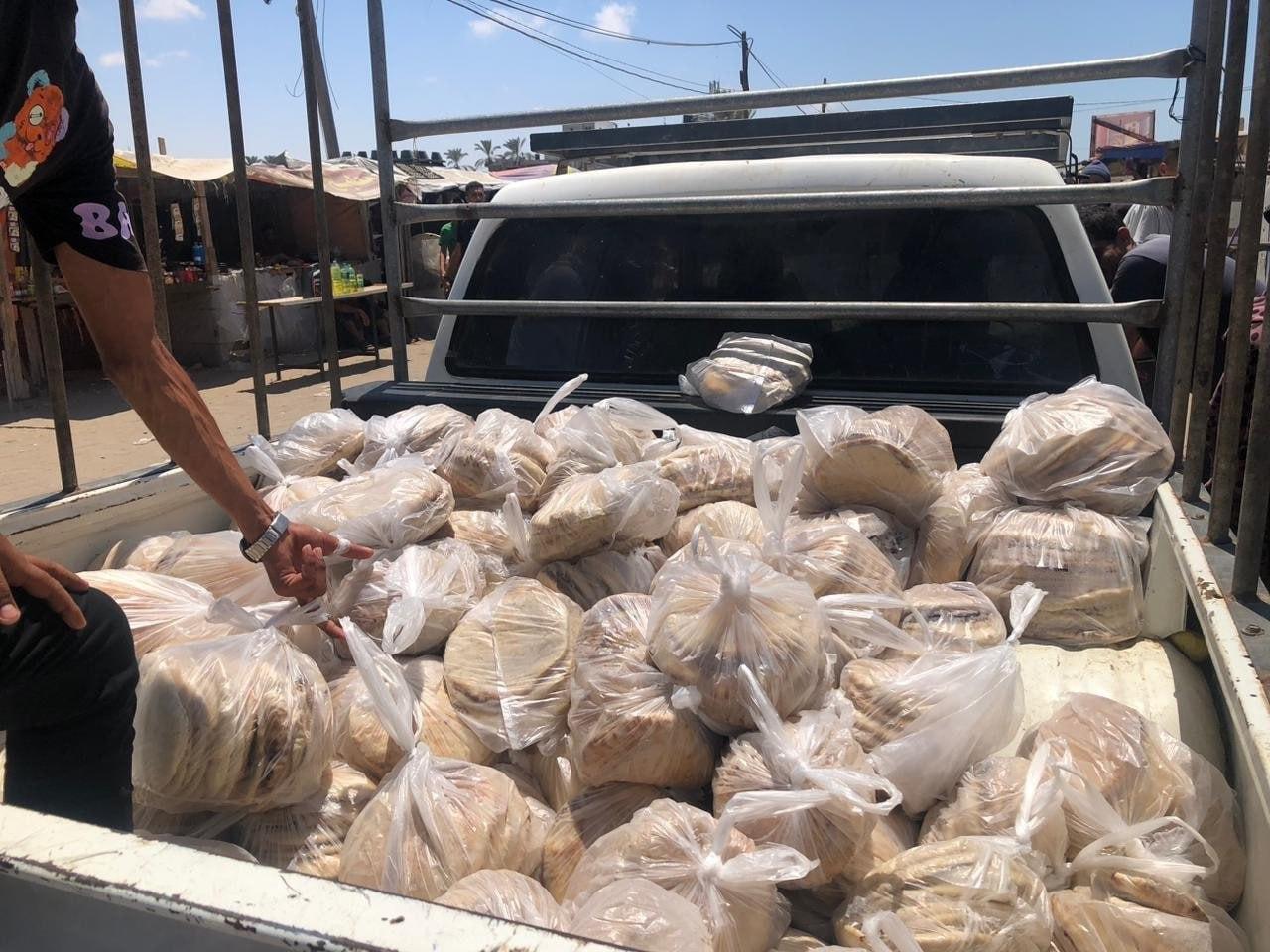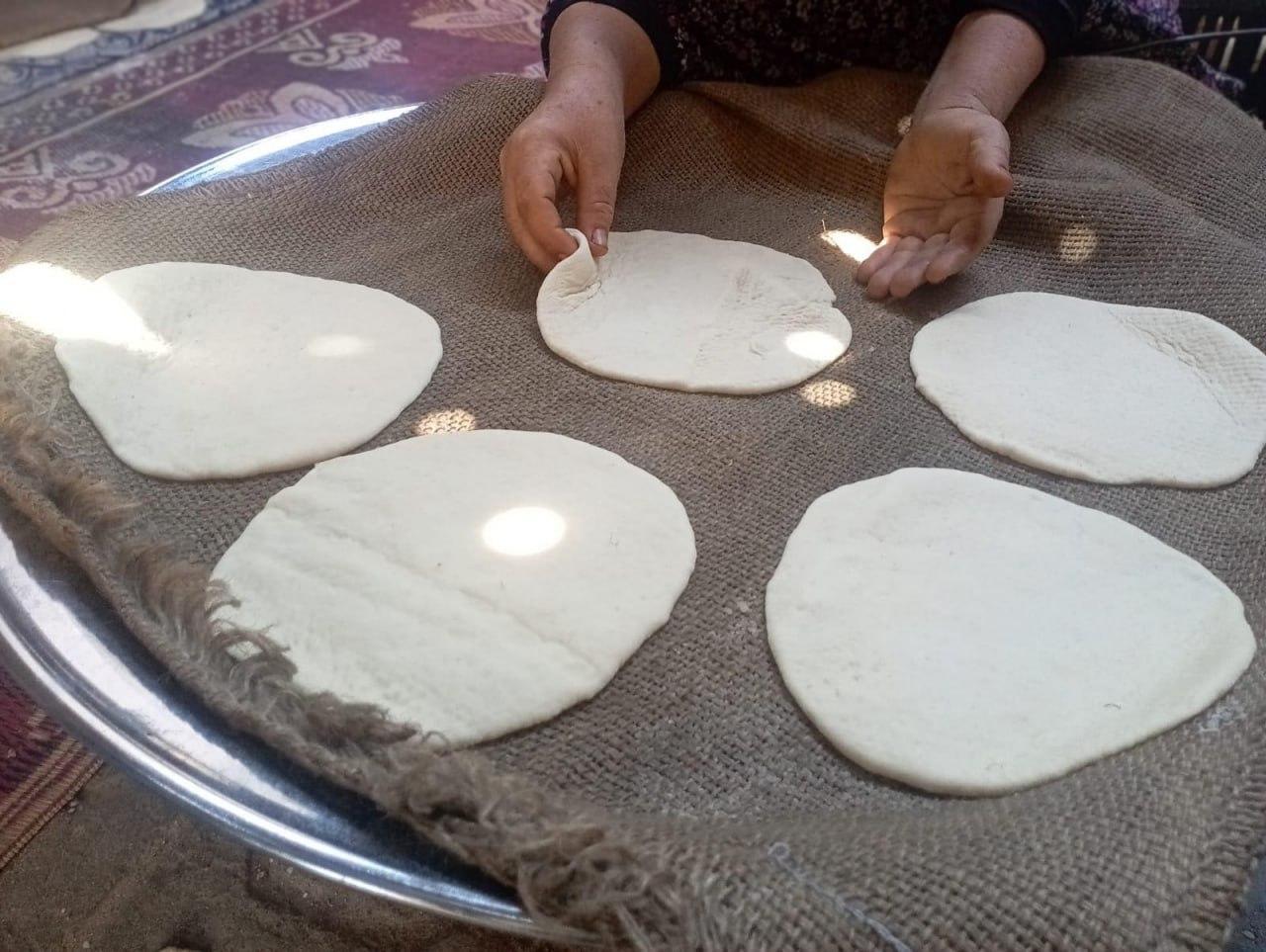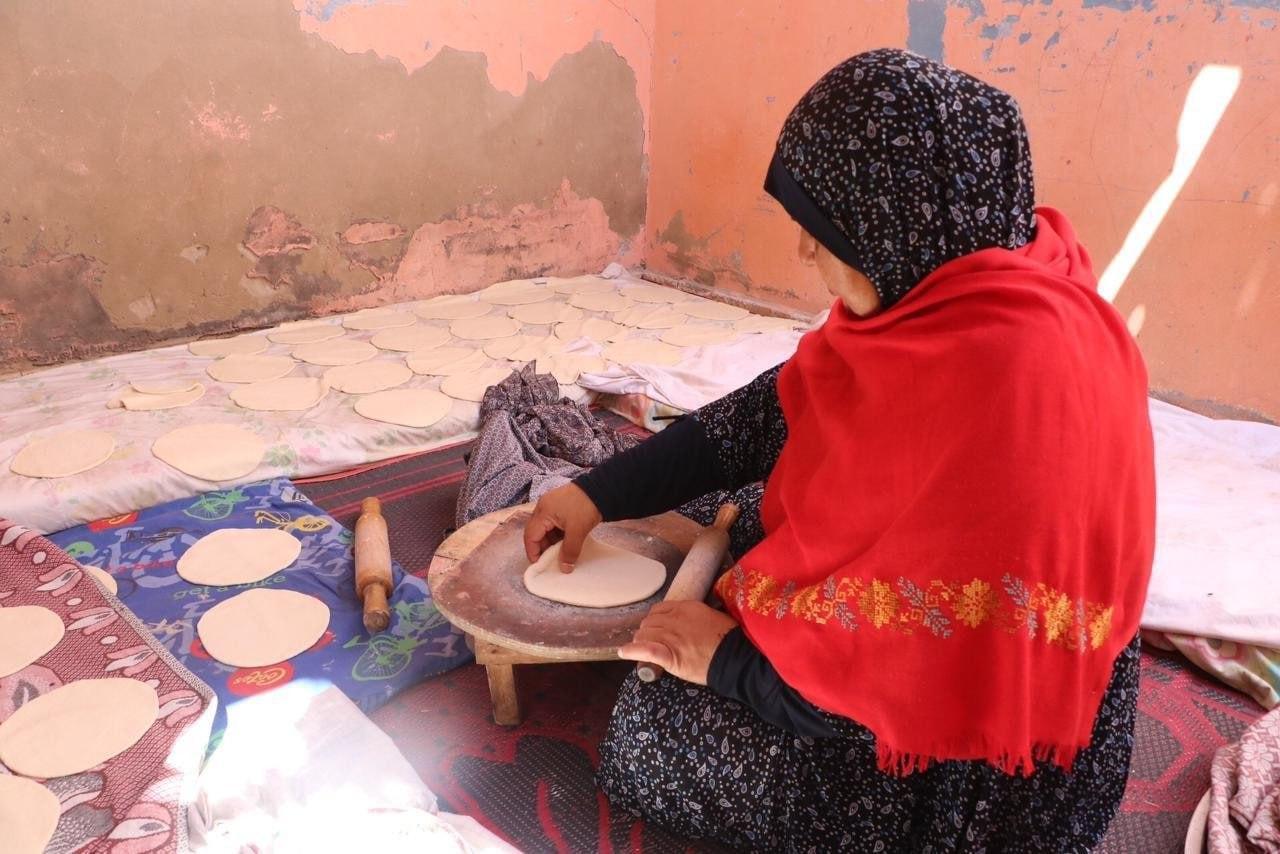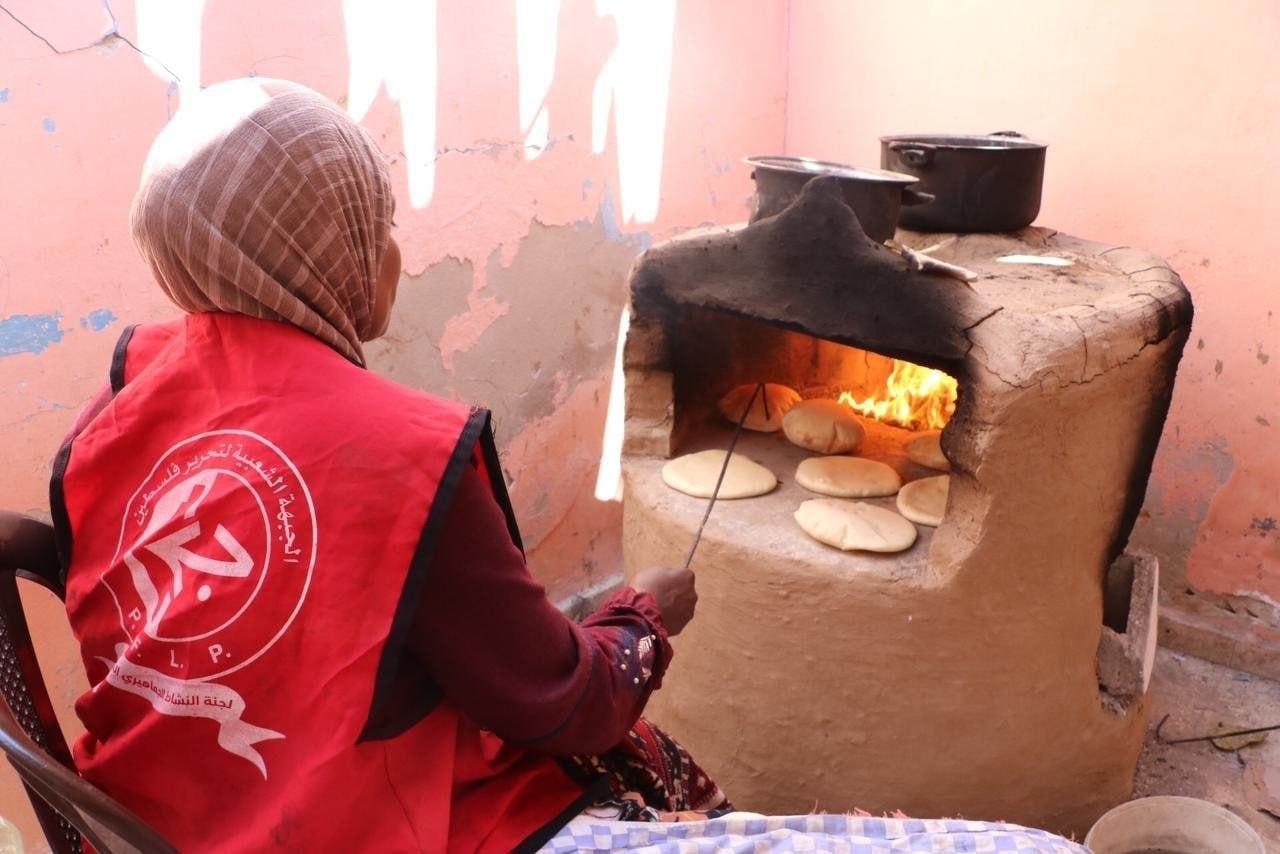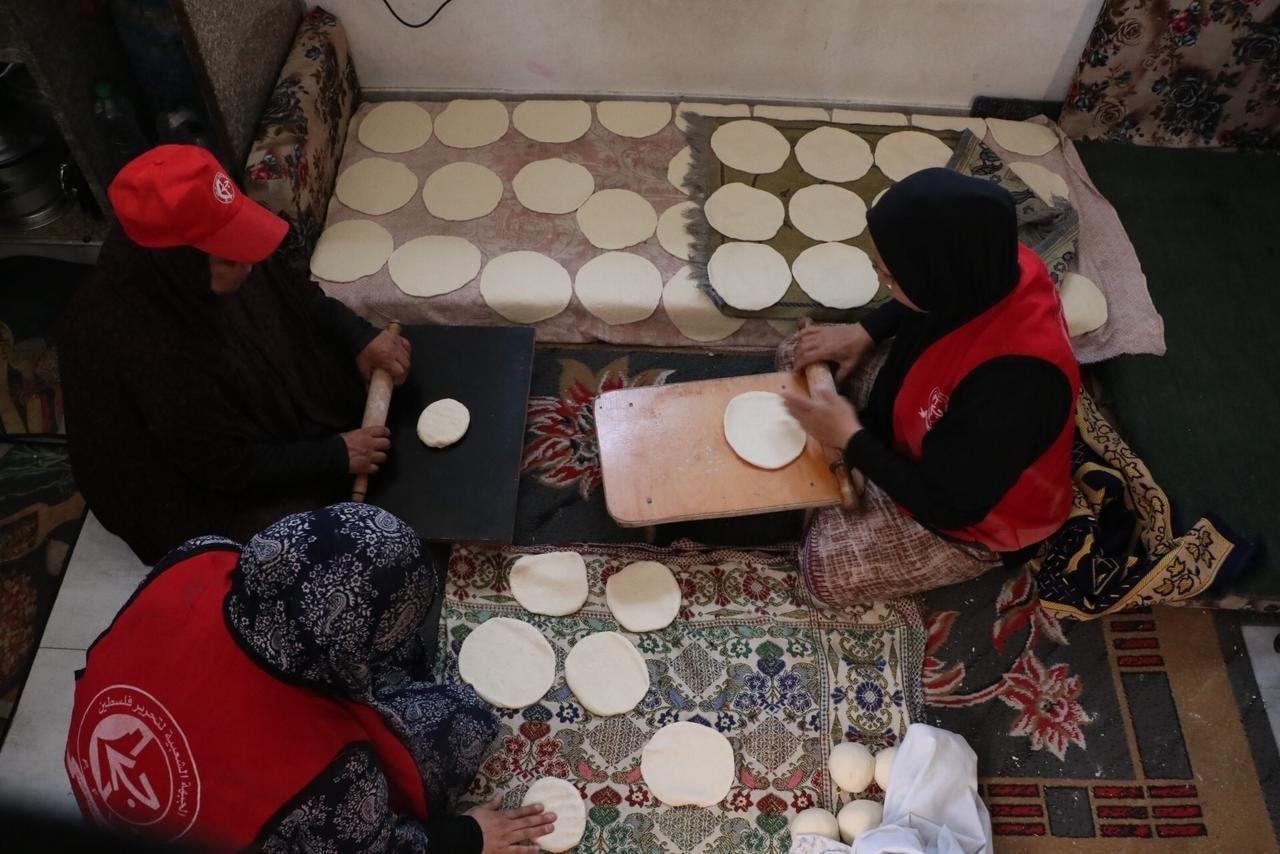
Throughout the wars on Gaza, those affiliated with factions are deliberately targeted, even those involved in relief and social work. Several factions, however, have undertaken “secret” relief and aid campaigns under different names since the beginning of the genocide war last October.
The zionist entity seeks to eliminate these social work networks as part of its systematic genocide, in addition to other social infrastructure. Yet, the people persevere, steadfast.
A simple loaf of bread has become a dream for many throughout months of famine and genocide, especially through IOF’s weapon of starvation and targeting of bakeries. This is entrenched by the scarcity of flour and IOF’s bombing of aid distributors and recipients on several occasions, such as the “Flour Massacres.”
The Al-Hadaf journalist spoke with those on the ground in the emergency committees in the Popular Front for the Liberation of Palestine, which has a long history of volunteer work throughout decades. The emergency committee is the umbrella under which PFLP members, cadre, and volunteers operate to find solutions based on the idea of involving the community in addressing urgent crises.
Women are primarily involved in undertaking this task, having formed successful bread cooperatives, starting in Rafah and Khan Younis. They “endured the heat of clay ovens so their hearts would not burn with the hunger of their children,” with simple ovens that burn wood and tree branches to provide for their community.
The idea of the cooperatives was inspired by mothers and grandmothers who did this first for their families, and it started in the most crowded areas of the southern Strip. It succeeded, and the efforts of the committee grew day by day.
The committee’s media officer highlighted the success: “We now have dozens of cooperatives where dozens of women work in the five governorates of the Strip, producing thousands of loaves of traditional bread daily. For example, the bread cooperatives in Khan Younis governorate produce 7,000 loaves, all distributed free of charge to the displaced, as in the other governorates.”
The bread is always distributed for free, in contrast to the outrageous rise in prices of commodities, in order to combat exploitation. The committee sought to extend its work by distributing often-monopolized goods, such as flour bags.
Hajja Khalidiya, a 67-year-old widow in Khan Younis whose grandchildren were martyred, spoke about how the PFLP quickly put her name on the bread recipient list. She doesn’t have the income to buy bread and her health condition prevents her from making it. Although she wants to help the volunteers, they excuse her and ask her to rest. “They fed the children…Your effort, young men, doesn’t fall short on your people.”
Abu Mohammed, a 57-year-old man that was displaced from Jabalia to Khan Younis, is in a similar situation. He cannot afford neither flour nor bread, and was grateful for the volunteer teams: “Since then, I have been relieved of the burden of bread, firewood, and gas. Even when our tent was flooded at the end of last winter due to rain and flooding, I asked them for tarps and reinforced plastic to support the tent, and they provided it as quickly as possible.” He hopes that the whole word carries out their duty as the volunteers do.
As for the members of the cooperative, they were quickly keen to help their people. Zahra, a 41-year-old woman in Bani Suheila said that she didn’t hesitate for a moment to join the bread cooperative, despite her being displaced like the people she was helping. Through her work, she was able to provide income for her family amidst the price hikes due to the siege.
Tasneem, 27, is another displaced volunteer, who was forced to move with her family from Al-Shati’ to Khan Younis. She was eager to join the cooperative, “especially as women play a national role and help people in these difficult conditions,” regardless of the financial incentive. “This experience made me feel some psychological comfort that I lost for a long time due to the prolonged war. I am happy with this humanitarian role, feeding people bread for free, made by my own hands.”
As seen by the organizers, the efforts of the PFLP’s Emergency Committee, whether in bread cooperatives, soup kitchens, or other initiatives, are not just a tool of relief to feed the displaced or meet some needs, but rather, they are a tool of struggle to maintain cohesion, solidarity, and the ability to work collectively, a political commitment from all fighters against the zionist genocide system.
One of the organizers says, “After any effort, we only feel a sense of falling short and the necessity to do more for this brave and steadfast people. This is a different phase in a long struggle we must undertake to defend our existence and our rights.”
The report concludes: “The idea emerged with the birth of the crime, and it continues in the hope that hunger created by the killer will not longer remain in the homeland.”
